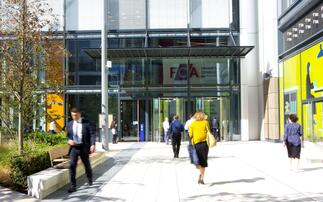Regulatory reform costs of the former regulator, the Financial Services Authority (FSA) more than doubled in the last year of its operation and could in future be levied on firms, the FSA annual report has revealed today.
The costs of regulatory reform to the regulator reached £28.7m in the year to 31 March 2013, compared with £11.4m in 2012, according to figures published in the FSA's last annual report.
An FCA spokesperson said: "These are one-off costs that are purely associated with the move from the FSA to the FCA and PRA. That regulatory implementation is not something that happens every year. I would not expect to see the costs grow year on year in the future."
However, should the costs continue, the regulator said they are likely to be included in the regulator levy and split across the fee blocks of the affected firms.
The FSA said in its report: "The FCA will recover these costs in future years from entities specifically aligned to these initiatives once they have been implemented."
The associated costs included work on the transfer of consumer credit, the Alternative Investment Fund Managers Directive (AIFMD) and the Retail Distribution Review (RDR).
Chairman Lord Turner said the regulator had transformed successfully and achieved radical changes in its approach to prudential supervision and conduct regulation, meaning it acted faster and had built a effective enforcement approach of credible deterrence.
The FSA's main challenges identified originally for the period were delivering financial stability, market confidence, consumer protection and acting on financial crime.
The FSA later found that more extensive work needed to be done on LIBOR, redress procedures for victims of the interest rate swapping scandal and the protection of depositors of Cypriot banks in the UK.
The report covers the final year of the Financial Services Authority (FSA), from April 2012 to the end of March 2013, when the Financial Conduct Authority (FCA) took effect.
The FCA took over responsibility for the supervision of conduct of all regulated financial firms and the prudential supervision of those not supervised by the Prudential Regulation Authority (PRA) on 1 April 2013.












